ICMI Newsletter - September 2024
Editors:
Jean-Luc Dorier (ICMI Secretary-General)
Merrilyn Goos (ICMI Vice President)
Lena Koch (ICMI Administrative Manager)
Technical support:
Vanessa Chung, IMU Secretariat
Publishing dates:
March 15, June 15, September 15, December 15
1. Editorial - From the Desk of Anjum Halai, ICMI Vice-President (2021-2024)
 Education, and especially in mathematics, is a key strategy to achieve a more equitable, peaceful and sustainable world in the context of an increasingly global and technological world, fraught with challenges such as climate change, conflict and persistent inequities. ICMI is committed to support research and development in mathematics education at all levels worldwide.
Education, and especially in mathematics, is a key strategy to achieve a more equitable, peaceful and sustainable world in the context of an increasingly global and technological world, fraught with challenges such as climate change, conflict and persistent inequities. ICMI is committed to support research and development in mathematics education at all levels worldwide.
ICMI’s commitment towards this end is reflected in the work that it leads or supports. The Capacity and Network Project (CANP) was created in 2011 and has been central in ICMI’s endeavor towards equity and inclusion with its emphasis on initiating and building networks in and across under-represented countries, many of which are also low-income countries. To date ICMI has supported five such projects; CANP1 (Francophone Sub-Saharan African Region), CANP2 (Central America and the Caribbean), CANP3 (Southeast Asia), CANP4 (East Africa) and CANP5 (Andean Region and Paraguay).
ICMI provides umbrella support to CANPs to enable systemic, sustainable, and locally grounded networks to promote mathematics education in areas of need identified at the grassroots level. Supporting teachers and educators is an important thrust of the CANPs because availability of teachers with sufficient academic preparation and content knowledge in mathematics is fundamental to promote mathematics and a love for mathematics. Enhanced knowledge of mathematics is also important for teachers from a perspective of new developments in mathematics, for example, an understanding of the intersections between mathematics, data science, computing, statistics and perhaps most significantly technology.
ICMI has supported CANPs to achieve their goals through multiple strategies. These include enabling the mathematics educators to engage with highly qualified mathematicians in the course of workshop and seminars and provision of seed money to develop ‘action plans’ for sustainability of the initiatives undertaken by the respective CANPs. For instance, in February 2023, a workshop was organized in Thailand, where representatives of the CANP community engaged with peers across CANPs, ICMI Liaison, and ICMI EC to develop ‘action plans’ to ensure sustainability of the project and its work.
To enable CANPs to become part of the global conversations in mathematics education, CANP representatives have participated in global forums on mathematics education. For example, in ICME-15 held in Sydney in July 2024, a Discussion Group titled ‘Advancing mathematics education through networks outreach and inclusion: Case of CANPs’ was organized, responding to the ICME theme on inclusion, poverty, and inequality in mathematics education. It provided a forum for exchange between several marginalized and under-represented countries, as CANP representatives brought in many ideas about advancing mathematics education in their specific contexts. This participation ensured a two-way interaction; bottom-up local insights being shared from hitherto marginalized, under-represented and under-researched areas and top-down sharing of information where global developments in the field were shared with local communities from across the world.
While CANP is strong exemplar of ICMI’s effort to support mathematics education worldwide through its emphasis on inclusion, it is not the only initiative to do so. Indeed, all of ICMI’s work and effort of its Executive Committee are aimed at promoting mathematics education globally across all levels of education. Other examples include the ongoing and sustained effort to convert ICMI sponsored publications into open access publications so that knowledge is shared widely and is easily available. Details of ICMI activities are available on ICMI's website.
As an out-going Vice-President I have cherished the opportunity of working on a global platform like ICMI. It broadened my horizon, contributed to my professional growth, and enabled me to enhance the impact of my work in the field of education. I hope that I was also able to contribute, even if in a small way, to advance the mission and goals of ICMI.
I wish to thank my colleagues in the ICMI EC for their collegiality and adherence to the high ideals of professionalism amid a multitude of challenges.
Best wishes and success to the incoming ICMI EC (2025-28).
Anjum Halai
2. New ICMI Executive Committee
Jean-Luc Dorier, ICMI Secretary-General
The General Assembly (GA) of ICMI meets every four years on the day before the opening of the International Congresses on Mathematical Education (ICMEs). The last ICMI GA was held in a hybrid mode in Sydney (Australia) on July 7, 2024, just before the opening of ICME-15. Forty-two country representatives were present and 16 were online and elected the new ICMI Executive Committee.
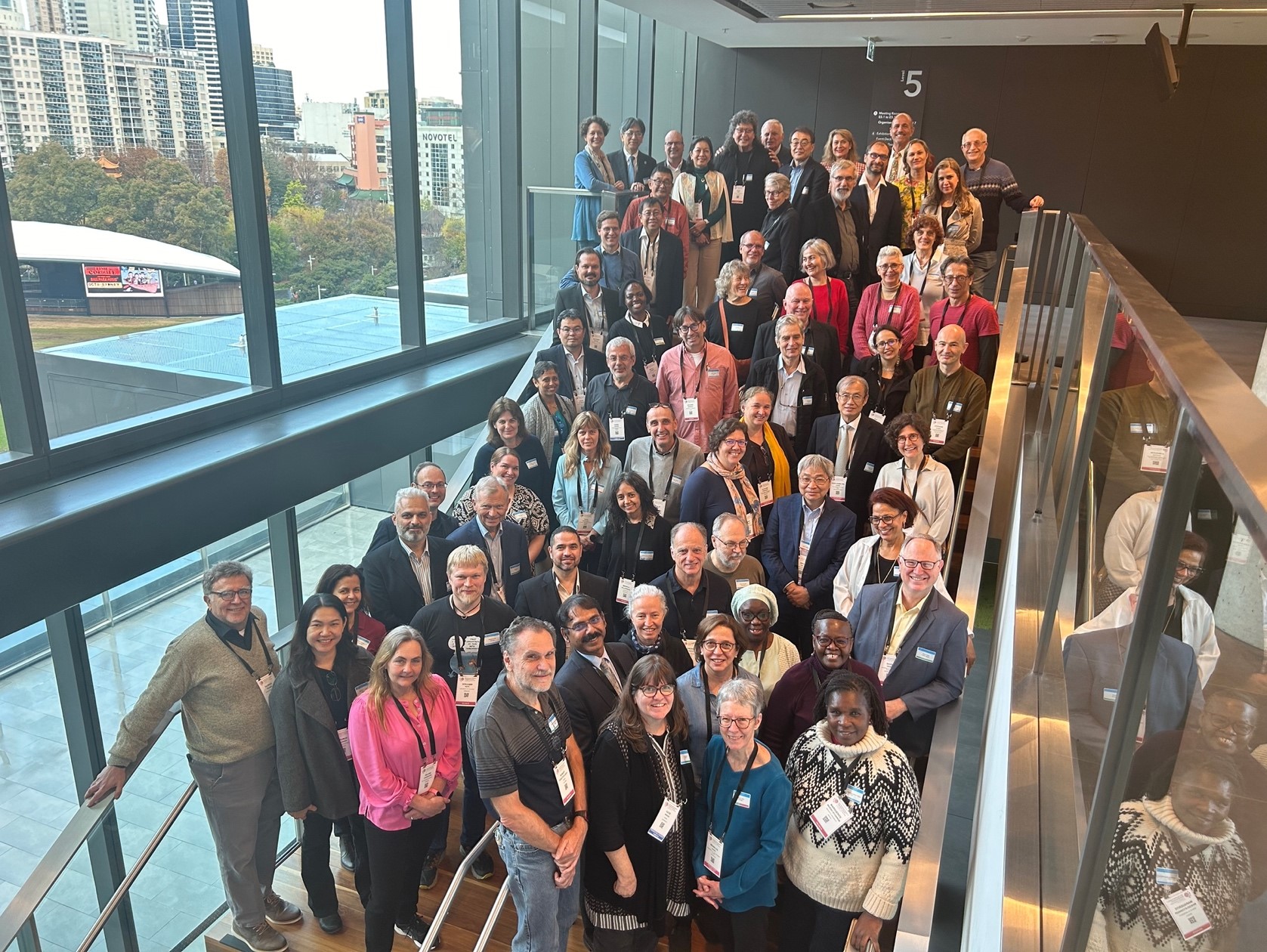 This new committee will be in service from January 1, 2025 for 4 years. It is composed of:
This new committee will be in service from January 1, 2025 for 4 years. It is composed of:
President : Merrilyn GOOS (Australia)
Secretary-General: Jean-Luc DORIER (Switzerland)
Vice-Presidents : Jinfa CAI (U.S.A.) | Betina DUARTE (Argentina)
Members-at-large: Mercy KAZIMA (Malawi) | Nùria PLANAS (Spain) | Susanne PREDIGER (Germany) | Ramaswamy RAMANUJAM (India) | Cristina SABENA (Italy)
Moreover, the ex-President of ICMI, Fredrick K.S. LEUNG, (Hong Kong, SAR, China) as well as the President and the Secretary-General of IMU, Hiraku NAKAJIMA (Japan) and Christoph SORGER (France) are members ex-officio. Paolo PICCIONE (Brazil) is the IMU liaison person for ICMI.
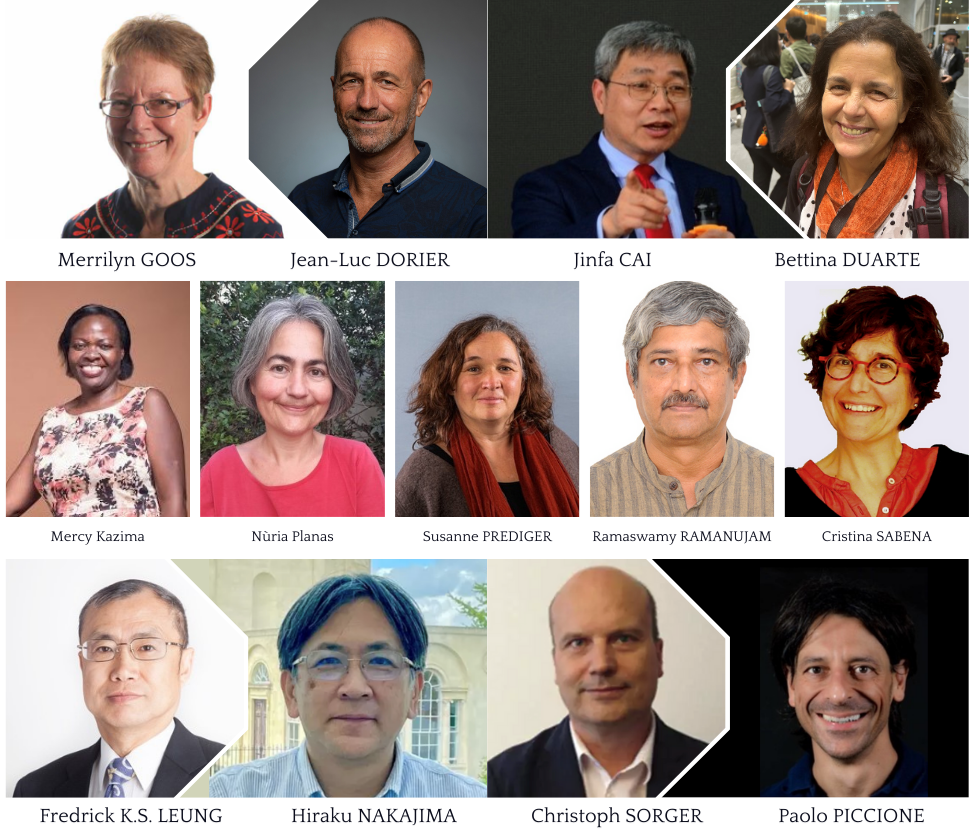
3. The 2024 Felix Klein, Hans Freudenthal and Emma Castelnuovo ICMI Awards
ICMI is proud to announce the ninth recipients of the Klein and Freudenthal Awards and the third Emma Castelnuovo, who were made public at the opening ceremony of ICME-15 in Sydney (Australia) on July 8, 2024.
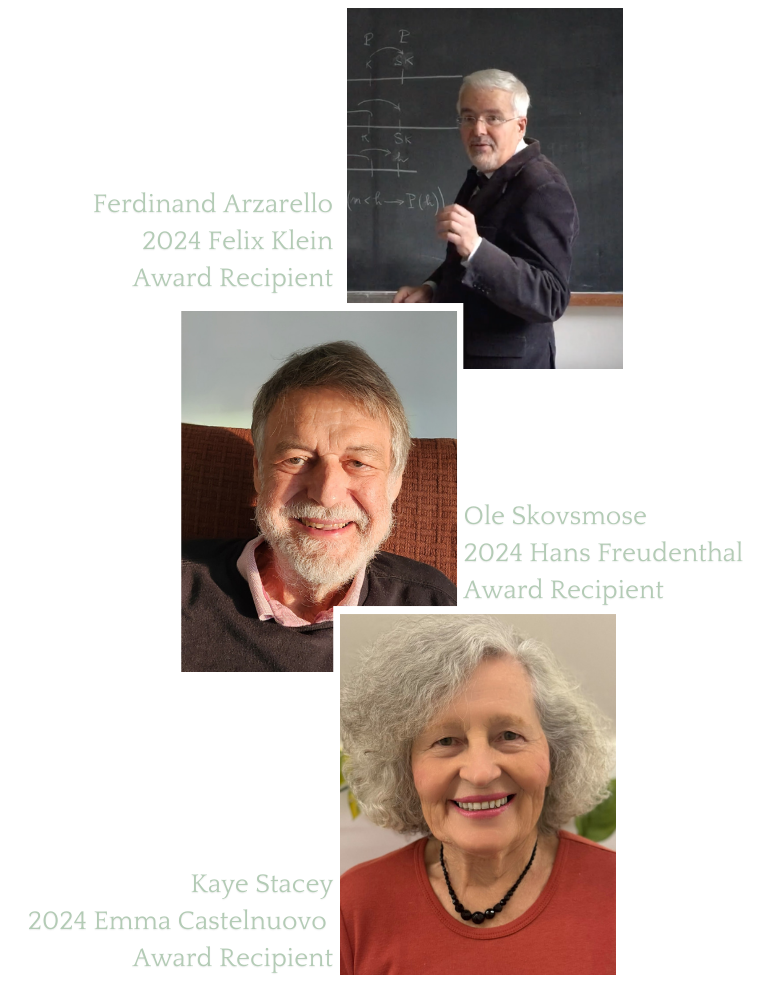
Ferdinando Arzarello, Professor Emeritus of the University of Turin, Italy receives the 2024 Felix Klein Award, in recognition of his more than forty years of sustained, consistent, and outstanding achievements in mathematics education research and development.
Ole Skovsmose, Professor Emeritus of Aalborg University, Denmark receives the 2024 Hans Freudenthal Award, for his outstanding contributions to the very foundations of mathematics education through his career-long explorations of Critical Mathematics Education.
Kaye Stacey, Professor Emeritus of the University of Melbourne, Australia receives the 2024 Emma Castelnuovo Award in recognition of her more than 40 years of research-based design, development and implementation of innovative, influential work in the practice of Mathematics Education.
The three full citations can be found on ICMI's website on the ICMI Awards.
4. Report on ICME-15

The 15th Congress, ICME-15, was held in Sydney (Australia) from July 8 to 14, 2024, with the ICMI General Assembly (GA) on July 7. IMU President, Hiraku Nakajima, and IMU Secretary General, Christoph Sorger, as well as Paolo Piccione, ICMI liaison from IMU EC, followed both events with great interest and interacted with the ICMI Community.
The Congress gathered nearly 2500 participants from nearly 100 different countries, around 200 being financed through a solidarity funds committee. The program included 4 plenary lectures and 2 panels, 3 awardees lectures, 59 invited lectures, 56 Topic Study Groups divided in 2 streams, 50 Discussion Groups, 70 Workshops, 5 National Presentations and several other events.
ICMI has 8 Regional and 9 Thematic Affiliate Organizations. As usual, they presented during the GA a quadrennial report and ran some specific activities during the Congress. Moreover, several of them also organized a satellite conference before or after the Congress in a region within or near the host country of the Congress. So, for many math educators an ICME year means often nearly 2 full weeks of congress and networking activities.
ICME was also preceded by a well-received Early Career Researchers’ day that featured interactive workshops on research methods and themes and strategies for building an academic career, as well as a panel discussion with editors of leading mathematics education research journals.
5. Statements of ICMI-EC on ICME-15
The ICMI Executive Committee (EC) would like to thank the International Program Committee (IPC) and Local Organizing Committee (LOC) of ICME-15, under the leadership of Convenor Professor Kim Beswick and LOC Chair Mr Will Morony, for their dedicated work in organizing a successful ICME.
On the incident affecting Prof Jayasree Subramanian, the EC is saddened to learn of her being asked to leave the Congress on Friday 12 July 2024.
Here you can find the first statement of the ICMI EC.
In relation to this matter, we believe that the ICME-15 Organizers were acting with the goal of maintaining a safe and respectful environment according to the Code of Conduct which had been made known to all participants. We are saddened by Prof Subramanian’s removal from the Congress and the distress and insult that she has experienced, and since ICMEs are organized under the auspices of ICMI, the ICMI EC would like to offer our apology to Prof Subramanian.
Here you can find the second statement of the ICMI EC.
ICME-15 has achieved a lot in furthering mathematics education worldwide, and we urge all of us not to let the achievement of ICME-15 be marred by this unfortunate incident.
ICMI EC (2021-2024)
6. Report from Michèle Artigue on her experience at ICME-15
 ICME-15 is the 12th ICME I have attended, the first being ICME-2 in 1972 in Exeter (UK). At that time, I was a young mathematician at the Mathematics Department of the University Paris 7 but I was already doing part of my service at the IREM of Paris. Its director André Revuz, who had been a member of the ICMI Executive Committee under the presidency of Hans Freudenthal, had invited me and a few colleagues to attend the congress. ICME-15 was my 12th ICME but the first in Australia as I had missed ICME-5 in Adelaide in 1984.
ICME-15 is the 12th ICME I have attended, the first being ICME-2 in 1972 in Exeter (UK). At that time, I was a young mathematician at the Mathematics Department of the University Paris 7 but I was already doing part of my service at the IREM of Paris. Its director André Revuz, who had been a member of the ICMI Executive Committee under the presidency of Hans Freudenthal, had invited me and a few colleagues to attend the congress. ICME-15 was my 12th ICME but the first in Australia as I had missed ICME-5 in Adelaide in 1984.
At this ICME, unlike at many previous ones, I had few obligations. I was simply co-organizer of the Discussion Group on the ICMI AMOR project and I also presented a paper, in TSG 4.4 (In-service mathematics teacher education and mathematics teacher professional development for secondary level), co-authored with two members of my laboratory, Julie Horoks and Blandine Masselin. This allowed me to take advantage of the many opportunities on offer even more than usual. However, there were so many parallel activities that I still missed a lot of the sessions that I was a priori interested in.
In Sydney I once again experienced what I particularly appreciate in ICME congresses, and first of all the diversity, the diversity of the participants - this time with a significant participation from Australasia, as one might expect - of their backgrounds, educational contexts, perspectives and realizations. It made clear, once again, that mathematics education is a field shaped by all kinds of diversity, cultural, economic, social, linguistic, etc., even if we all face some common challenges.
The congress also showed clearly, for example through the choice of plenary sessions, the high quality of which I particularly appreciated, that these challenges are constantly evolving. Traditional questions about the learning and teaching of particular areas of mathematics, about teacher education and professional development, are increasingly linked to broader issues, such as inclusive mathematics education, educational inequalities, and the contribution of mathematics education to the development of informed, critical and engaged citizens.
Meeting these challenges requires greater recognition of the contributions of the Global South to our community, as Past ICMI President Jill Adler clearly demonstrated in her lecture. As ICMI Secretary General Jean-Luc Dorier reminded us in his closing address, the search for a better balance between the Global North and the Global South within ICMI has been a major objective of the Commission over the last few decades, and I was pleased to observe at this Congress the progress made in this awareness, even if much remains to be done.
If mathematics education is to respond effectively to the problems of humanity, which was the theme of the second plenary panel, which was particularly well organized and successful, research in mathematics education must also remain in close contact with the mathematics of today. From this point of view, the plenary lecture by the Australian mathematician Jason Sharples on the Mathematics of bushfire was exemplary. And I also appreciated the way in which Jason Sharples integrated some ancestral knowledge of Aboriginal communities into his presentation, highlighting the intelligence of the associated fire management techniques. Indeed, at an ICME taking place in Sydney today, on the land of the Gadigal clan of the Eora Nation, where our hosts frequently reminded us of the need to «warmly acknowledge the custodians of Gadigal country and show our respects to the Elders past, present and future, honoring the traditional laws, culture and country of the First Peoples of this land”, it was important not to forget the knowledge of the indigenous populations.
For me, ICME-15 was also an opportunity to meet up with many friends, some of whom I hadn't seen since the pandemic, to listen to them talk about their work, to get to know young researchers and to see their enthusiasm. At my age, after so many years spent in this community, it was a real joy. That's what I want to remember about this conference, which will undoubtedly be one of my last ICMEs, even though, like many of the participants, I was shocked by the brutal expulsion of our Indian colleague. I am pleased that the ICMI Executive Committee, while acknowledging that the ICME-15 organizers were certainly acting with the goal of maintaining a safe and respectful environment for the congress, has offered its apology to her.
7. A Research Mathematician's Journey at ICME-15 in Sydney
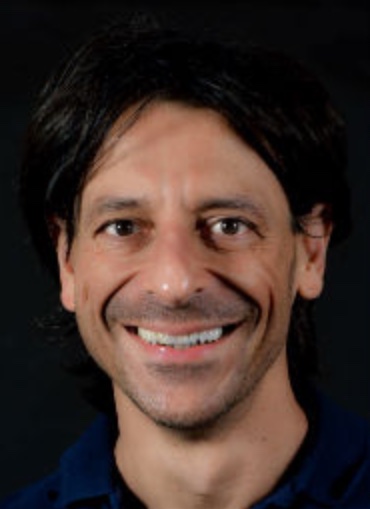 Pr. Paolo Piccione, University of São Paulo, IMU Liaison in the ICMI EC
Pr. Paolo Piccione, University of São Paulo, IMU Liaison in the ICMI EC
Participating in ICME-15 was a unique and eye-opening experience for me as a research mathematician. Having never attended a mathematics education meeting before, I was intrigued by the depth and breadth of discussions surrounding the teaching and learning of mathematics. The congress offered a fresh perspective on how mathematical concepts are communicated and understood across different educational contexts. Engaging with educators and researchers from diverse backgrounds allowed me to appreciate the challenges and innovations in mathematics education, an area that, until now, I had only observed from a distance. With over 2,300 participants from 92 countries, I was deeply impressed by the diversity and cultural richness that the organizers of the meeting brought together.
Before the congress began, I had the privilege of participating in the meeting of the Executive Committee of the International Commission on Mathematical Instruction (ICMI) as the liaison person from the Executive Committee of the International Mathematical Union. I want to extend my heartfelt thanks to all members of the ICMI Executive Committee for warmly welcoming me into their group and to the IMU Executive Committee for assigning me this important role. I greatly enjoyed my time with them, and this experience has significantly broadened my career perspectives, inspiring me to contribute more actively to the global conversation on mathematics education.
The plenary sessions at ICME-15 were particularly enlightening, offering a comprehensive overview of current issues in mathematics education, from curriculum development to the integration of technology in teaching. The first two days featured a series of talks and panels that set the tone for the congress. Many of the speakers explored the global challenges in mathematics education, emphasizing the need for inclusive and equitable practices.
Compared to research mathematics meetings, I found the group of participating math educators at ICME-15 to be more varied and international. The diversity of perspectives and experiences was striking, with attendees representing a wide range of cultural and educational backgrounds. This diversity enriched the discussions and offered a global view of the challenges and opportunities in mathematics education.
One of the most thought-provoking realizations I had during the congress was the contrast in perspectives between mathematicians and math educators. While mathematicians, regardless of their geographical location or working conditions, tend to share a common view of mathematical research, math educators often have very different perspectives on teaching and learning. These perspectives are shaped by their local educational systems, cultural contexts, and the specific challenges they face in their regions. This diversity of views among educators underscores the complexity of mathematics education and the need for context-sensitive approaches to teaching and learning.
The Topic Study Groups provided a deep dive into specific areas of interest, and I found the collaborative atmosphere to be both stimulating and inspiring. It was fascinating to see how research in mathematics education intersects with and informs mathematical research, and I left the congress with a renewed sense of how my work as a mathematician can contribute to and benefit from these ongoing conversations.
Adding to the richness of the experience, the congress was held in the beautiful landscape of Sydney’s harbor, with stunning views that provided a serene backdrop for the intense discussions and collaborations. The picturesque surroundings added a special dimension to the event, making it even more memorable.
Overall, ICME-15 broadened my understanding of the educational landscape and highlighted the importance of collaboration between mathematicians and educators in shaping the future of mathematics learning and teaching.
8. The ICMI Nominating Committee (NC) and the ICMI General Assembly (GA) – A brief personal report
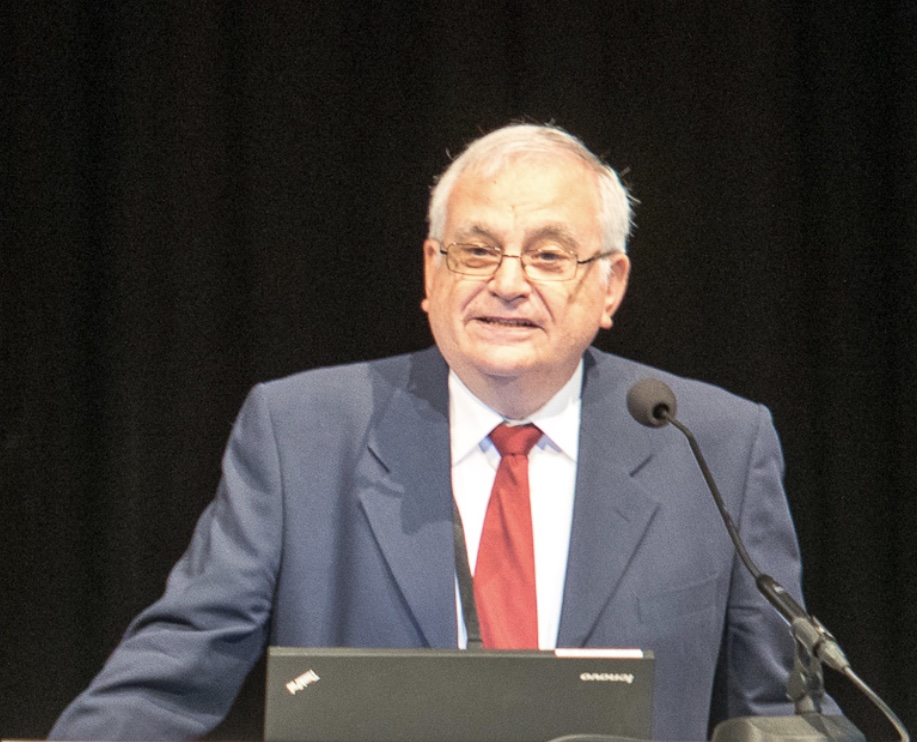 Pr. Abraham Arcavi, Chair of the Nominating Committee
Pr. Abraham Arcavi, Chair of the Nominating Committee
Since 2008, it is an established tradition that the day preceding the opening of any ICME is devoted to the ICMI General Assembly (GA). The GA is constituted by the members of the ICMI Executive Committee and the ICMI Country Representatives, with the attendance of invited guests (Chairs of ICMI Thematic and Regional Affiliate Organizations and past ICMI officers).
This time, the GA took place on July 7, 2024 in Sydney. The meeting opened with welcoming addresses by the IMU President, Hiraku Nakajima and the ICMI President, Frederick Leung. The ICMI Secretary General, Jean-Luc Dorier presented a comprehensive quadrennial report of activities and Chairs of all the ICMI Affiliate Organizations presented brief pre-recorded reports. This time, the GA introduced a novel and successful component to the agenda: roundtables of 6-7 attendees who discussed issues of incumbency to the ICMI constituency, offering a space for attendees to know each other and interact.
A main component of all the GAs is the election of the upcoming ICMI Executive Committee, in which only the Country Representatives have the right to vote for the candidates in a slate, which is presented to them by an ad hoc Nominating Committee (NC). The statutes that rule the election, composition and functioning of the NC, and the subsequent election procedures, can be found on the ICMI website's page on the NC.
I was honored by the invitation of the ICMI President, Frederick Leung, to chair the NC. The NC members were: Frederick Leung, Hiraku Nakajima (as core members) and David M. Bressoud (USA), Christine Chambris (France), Cristina Esteley (Argentina) and Catherine Vistro-Yu (Philippines) as members-at-large. The NC started to work in November, 2022, and presented its slate to the ICMI Secretary-General in May 2024 for distribution to the Country Representatives.
The work of the NC was confidential, and all the members were obliged to disclose conflicts of interest, if any. Before proceeding to the constitution of the slate itself, the NC agreed on a set of criteria for the selection of candidates. These criteria included: balancing between renewal (new and energetic candidates with ICMI/ICME involvement) and continuity (members involved with ICMI in the past), candidates with experience in mathematics education and committed to it, and having national, regional or international visibility. Also, the slate proposed should be, as much as possible, balanced in terms of gender and geographical spread. The NC deliberations took several rounds before achieving consensus among all its members, and it took into account all the nominations received by Country Representatives and IMU Adhering Organizations as well as those proposed by the NC.
According to the statutes, the slate selected included one candidate for ICMI President, one candidate for ICMI Secretary-General, two candidates for the two Vice-Presidents and eight candidates (selected from 16 submissions) out of which five would be elected to serve on the ICMI EC.
The smooth election procedure was carried out electronically, and was open to all Country Representatives (those present at the GA and those who could vote remotely). The result, namely the composition of the incoming ICMI Executive Committee, taking office on January 1, 2025 has been presented above in this newsletter.
I extend my thanks to ICMI President, Frederick Leung, for inviting me to chair the NC. My gratitude to the all the NC members for their contributions to the efficient, sensitive, open, honest and unbiased deliberations. Finally, I express my wholehearted wishes that the upcoming ICMI EC will succeed in taking ICMI to new heights.
9. ICME-16 will be held in Prague – July 9–16, 2028
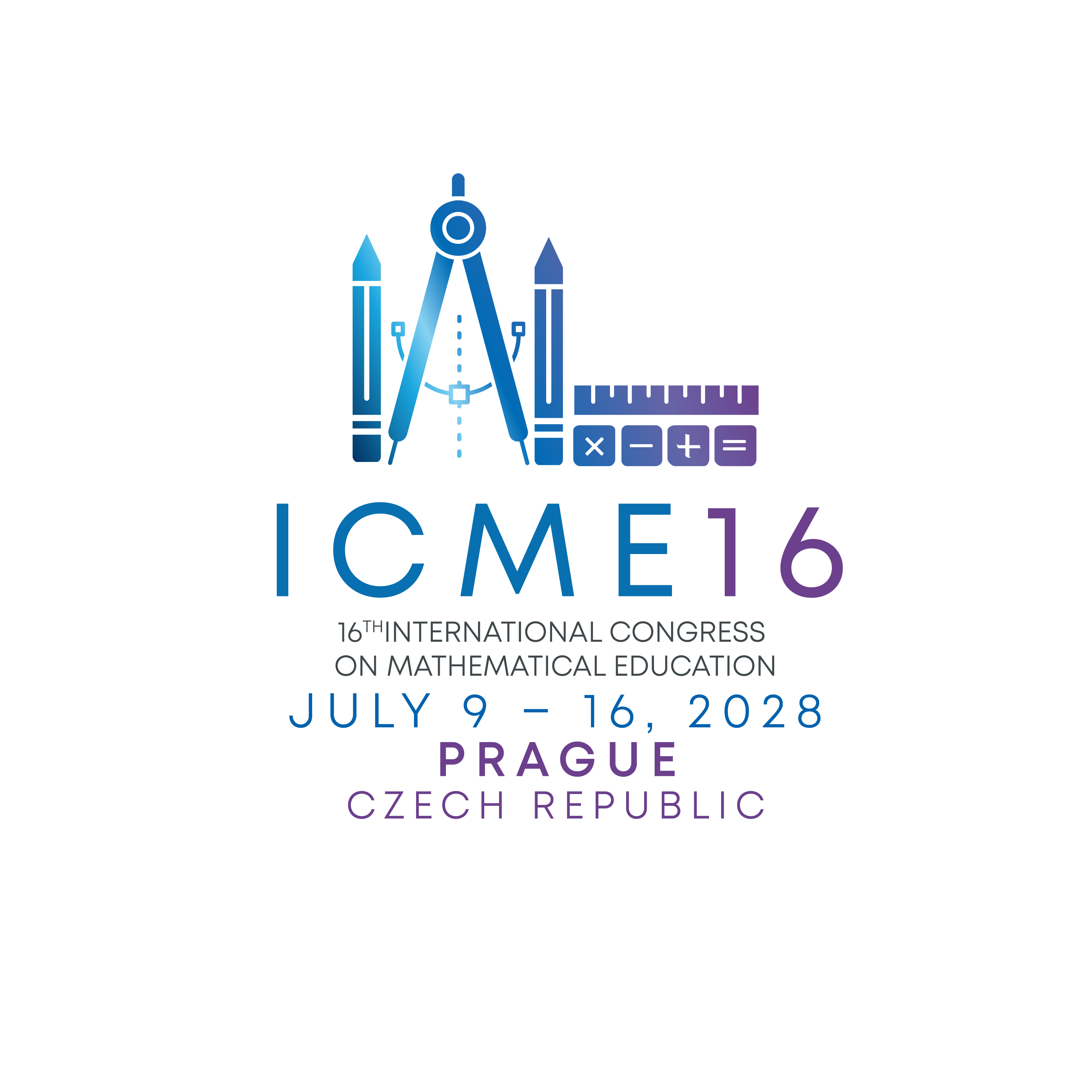
After the success of ICME-15, the organizing team is excited to announce that preparations for ICME-16 are now underway. This prestigious event will be held from July 9-16, 2028, in the beautiful and historic city of Prague, right in the heart of Europe.
Although hosted by the Faculty of Education at Charles University, ICME-16 will be a collaborative effort, drawing on the expertise of universities that train mathematics teachers not only in the Czech Republic but also in Slovakia, Poland, Austria, Hungary, Estonia, Croatia, Lithuania, Serbia, Slovenia, and North Macedonia.
We warmly invite mathematics educators, mathematicians, teachers, and researchers from around the globe to join us in our shared mission: to deepen our understanding of the processes of learning and teaching mathematics and to enhance students’ grasp of this essential subject.
ICME-16 promises to offer a truly unique experience. The countries of Central and Eastern Europe, with their shared history, have much to contribute to the international community. This includes insights from the period of isolation under communist regimes, the turbulent 1990s, and the present day, which may be less familiar to many. A special feature of the congress will be a fascinating blend of events—lectures, panels, posters, exhibitions, publications, excursions, competitions, and more—highlighting significant milestones in the development of mathematics and mathematics education.
This congress will also be an excellent opportunity for the Czech Republic and other Central and Eastern European nations to enhance the visibility of their research on the global stage. We invite you to join us in Prague for ICME-16. Experience one of the world’s most beautiful cities, connect with colleagues from all corners of the globe, and contribute to the ongoing advancement of mathematics education.
To express your interest in attending, please fill out the form on the ICME-16 website.

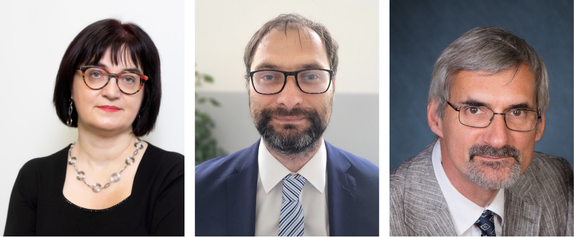
10. Latest news about ICMI Study 27 “Mathematics education and the socio-ecological”
Kate Le Roux and Alf Coles, Co-chairs ICMI Study 27.
The ICMI 27 Study Conference is set to take place from January 22 to 25, 2025, in the Philippines. Over 70 submissions, authored from 29 countries, were received. In July 2024 the International Program Committee (IPC) reviewed most of the papers in our first in-person IPC meeting in Sydney. We are grateful to the full IPC for their reviews, prompting deep engagement with what it might mean to bring mathematics education into relation with the socio-ecological, and to Vince Geiger for organizing the productive thinking space. We also furthered the Conference program planning, including how plenaries and the Conference location itself, Ateneo de Manila University, Quezon City, Philippines, might contribute to our creative thinking about the topic.
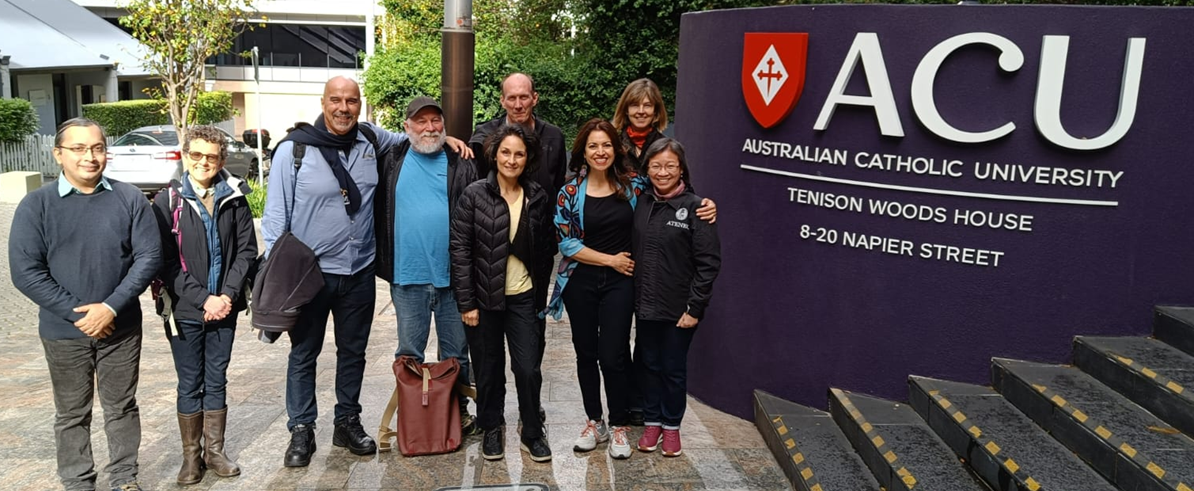
The ICME-15 Discussion Group “Mathematics Education and the Socio-Ecological”, led by members of the IPC (and Khemduth Singh Angateeah), was a rich space to converse with a number of paper authors, the Local Organizing Committee (LOC), and others in the community. Session 1 (75 participants) and Session 2 (85 participants) confirmed the high level of interest in the topic, and gave the IPC an opportunity to collaborate on the kind of conversations we envisage for the Conference.
First, the Group explored: How are socio-ecological issues/problems forming in your local space?; Which communities and territories are being affected and how? Responses gave place-based meanings to entangled ecological/environmental, social, economic and political experiences, and asymmetries in the role of humans in these entanglements. These contributions align with Study Theme B, Scales of Mathematics Education. The Group then asked: What aims does mathematics education pursue in the socio-ecological? (Theme A). Thinking about mathematics education for interrelations, community, making sense of connectivity, and balance, generated questions of: What aims for education? What mathematics? And how do we ‘know’ if re-imagined aims are realized? With the thinking prompted by Themes A and B, the Group zoomed in on Theme C, Resources of/for Mathematics Education (i.e. practices; concepts, constructs, objects; tools). Diverse notions of resources included: actions, time, cellphones, online materials, time, craft, big data, qualitative stories, home, and hope. Thus (re)turning us to issues of power, and what constitutes both mathematics and the mathematics classroom. Discussion to this point led us to think about Mathematics Education Futures (Theme D), and tensions in experiences of hope, creativity, actions, uncertainties, fears, helplessness, and violences; and opportunities for mathematics (education) to (re)story futures.
11. News from the Commission for Developing Countries (CDC)
Ludovic Rifford, CDC Secretary for Policy
The next International Congress of Mathematicians (ICM 2026) will take place in Philadelphia, USA, from June 23 to June 30, 2026. The Commission for Developing Countries (CDC) is actively working with the organizing committee of the ICM 2026, the American Mathematical Society (AMS), and the Simons Foundation, on the funding program that will be offered to mathematicians from developing countries to participate in this exceptional event. We are pleased to announce that the call for applications opened September 1, 2024. For further information about the ICM Travel Grants, please go here.
We would like also to remind you about our new IMU-Simons Research Fellowship Program for Developing Countries, generously funded by the Simons Foundation. This new grant program supports mathematicians based in developing countries in undertaking collaborative research at mathematical institutions abroad. The CDC strongly encourages mathematicians and students from developing countries to apply to our calls listed below and to contact us for further detail via email at cdc.grants@mathunion.org.
Grants to Institutions
- Volunteer Lecturer Program (next deadline December 1, 2024, for courses to be held between June 1, 2025, and June 1, 2026)
- Library Assistance Scheme (no fixed deadline)
Grants for Conferences and Projects
- Conference Support Program (next deadline October 1, 2024, for conferences starting after February 1, 2025)
Grants to Individuals
- Abel Visiting Scholar Program (next deadline December 31, 2024, for research visits between May 1 and August 31, 2025)
- IMU-Simons Research Fellowship Program for Developing Countries (next deadline October 1, 2024, for research visits starting between February 15, 2025, and February 15, 2026)
Graduate Scholarships
- IMU-Breakout Graduate Fellowship Program (the 2024 call for nomination is now closed)
- Graduate Research Assistantships in Developing Countries (GRAID) Program (the 2024 call for applications is now closed)
12. News from ICMI Country representatives and Affiliate organizations
12.1. MERGA last conference
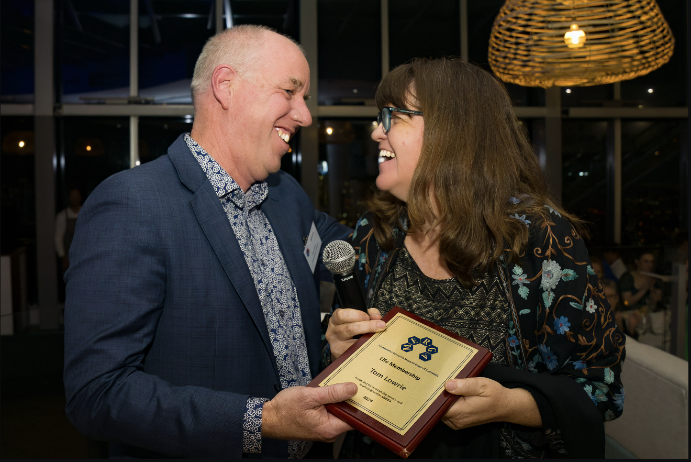
Figure 1 Professor Tom Lowrie receiving his Life Membership award from MERGA President, Professor Katie Makar, at the conference dinner.
The Mathematics Education Research Group of Australasia (MERGA) conference was successfully held from June 30 to July 4, 2024, at the Gold Coast, hosted by Griffith University and organized by colleagues from universities across South-East Queensland. The conference theme, "Surfing the Waves of Mathematics Education", aptly reflected both the iconic Gold Coast setting and the dynamic nature of mathematics education.
This year's conference attracted an international audience, with delegates from 15 countries including Australia, Canada, Cyprus, Fiji, Germany, India, Ireland, Italy, Japan, Malawi, New Zealand, Philippines, Singapore, South Africa, and the United States of America. The diverse participation underscored the global interest in the MERGA community for advancing mathematics education research and practice.
Two keynote speeches set the tone for the conference. Dr. Nathalie Sinclair, Distinguished Simon Fraser University Professor, delivered the opening keynote titled "Towards embodied validity in mathematics education research", which challenged researchers to consider embodiment in mathematical activity and research communication. Professor Mercy Kazima's keynote, "Interventions and development of mathematics education in primary schools", highlighted a decade of research and development projects in Malawi, focusing on improving mathematics teacher education and strengthening early years numeracy.
The Clements-Foyster lecture, presented by Professor Janette Bobis, explored the concept of significance in mathematics education research, offering valuable insights for researchers to articulate and enhance the impact of their work.
This year saw a record number of entries for the Beth Southwell Practical Implications Award, emphasizing the growing interest in bridging research and practice. Associate Professor Jennifer Way and Dr Katherin Cartwright emerged as the worthy winners for 2024. The Early Career Award recognized emerging talent in the field, with Chelsea Cutting and Matt Sexton sharing the honor (Figure 2).
A pre-conference workshop led by ATSIMA CEO Professor Chris Matthews, a Quandamooka man, was well-received. It focused on connecting mathematics and culture through the Goompi Model and emphasized building relationships with the Community.
A notable feature of MERGA 46 was its crossover with the Queensland Association of Mathematics Teachers Annual Conference (QAMTAC). The Teacher's Day event saw about 100 teachers from around Queensland attending the Beth Southwell Practical Implications Award presentation, which also marked the commencement of the QAMT State Conference, "Ideas into Action". This integration fostered valuable connections between teachers and researchers, enhancing the practical application of research findings.
The MERGA 46 conference successfully brought together diverse perspectives and approaches in mathematics education, providing a platform for rich learning experiences and collaborative opportunities. By bridging research and practice, the conference contributed significantly to advancing the field of mathematics education in Australasia and beyond.
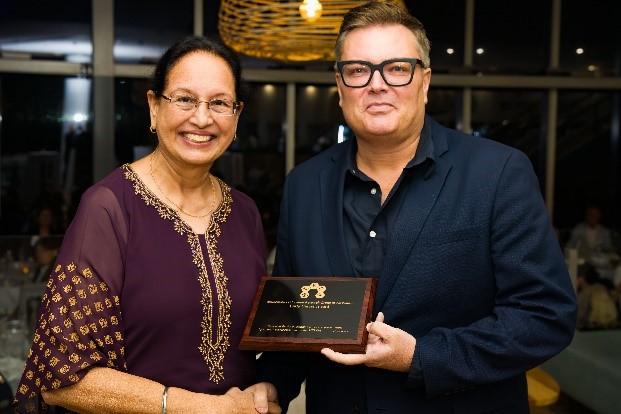
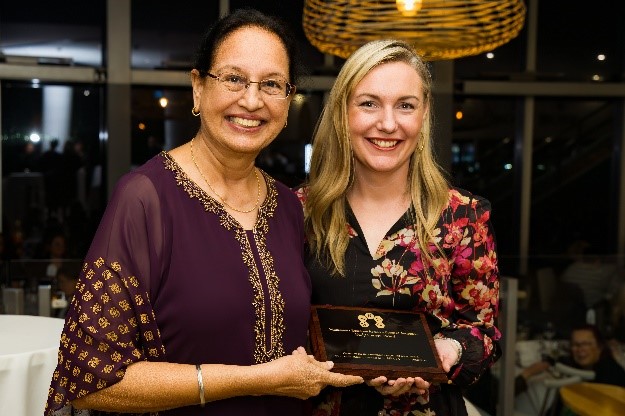
Figure 2 Dr Matt Sexton (top) and Dr Chelsea Cutting (bottom) receive their Early Career Research Awards from Vice President: Research, Professor Berinderjeet Kaur.
12.2. News from the U.S. National Commission on Mathematics Instruction (USNC/MI)
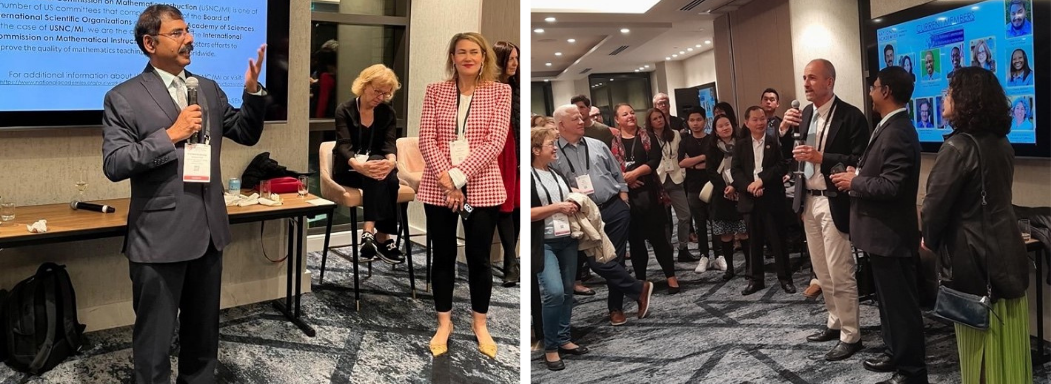
Left: Padhu Seshaiyer (George Mason University), chair of the USNC/MI and Ana Ferreras (Staff Officer)
Right:ICMI Secretary General Jean-Luc Dorier’s talk during the USNC/MI reception in Sydney
The U.S. National Commission on Mathematics Instruction (USNC/MI) goals are to plan, recommend, and encourage projects of international importance in mathematical sciences education and to have appropriate participation in ICMI activities.
The USNC/MI aims to support the U.S. community of mathematics educators in gaining value from international research, perspectives, and activities. Padhu Seshaiyer (George Mason University), chair of the USNC/MI, was appointed and served as the U.S. delegate in the General Assembly (GA) of ICME-15 held on July 7-14, 2024, in Sydney, Australia. The GA was attended by 58 country representatives. Marta Civil (University of Arizona) is serving as a member at large of the Executive Committee of ICMI until December 31, 2024. At the GA, Jinfa Cai (University of Delaware) got elected as one of the two VPs of ICMI for a term starting January 1, 2025.
The USNC held a variety of activities in conjunction with ICME-15, such as: A U.S. Reception thanks to the sponsorship of AMS, CBMS, NCTM, SIAM, and COMAP was attended by 153 experts, which consisted of ICMI leadership, the Congress Planning Committee, U.S. experts and some international delegates from countries, such as Philippines, Chile, Cambodia, Czech Republic, Costa Rica among others. The USNC/MI also supported a Networking Event on July 12 where 46 U.S. and Australian teachers and experts on mathematics education got to meet, discuss their background and areas of interests with the idea of exploring a future collaboration. On July 13, Data Science for Everyone sponsored Partnerships for Research & Innovations in Maths Education (PRIME) where experts from both Australia and the U.S. exchanged best practices on teaching data science and their current barriers and challenges. Attendees had a chance to learn how good professional learning is done plus walked away with great connections/potential new collaborations, and new concepts.
Gail Burrill (Michigan State University), past member of the USNC/MI, provided travel fellowships to 22 U.S. teachers and educators to participate in the Congress. They were all invited to the U.S. reception and to participate in a U.S.-Australia networking event and exchange. The commission will follow up on these exchanges and aim to establish a bilateral collaboration with Australia. Moving forward, the commission will collaborate with the USNC/Math (IMU) for ICM (IMU Congress) that will be held in 2026 in Philadelphia. The 2026 ICM will host events and sessions for mathematics educators and both USNCs will partner on this initiative. We invite you and welcome you to join us in Philadelphia on July 23-30, 2026 for the International Congress of Mathematicians (ICM).
12.3. HPM-11 Congress in Sydney
Évelyne Barbin, Emeritus professor – Nantes University (France)
The 11th meeting of the affiliate group HPM (International Study Group on the Relations Between History and Pedagogy of Mathematics) was held in the vast Campus of the University New South Wales (Kensington) from Monday 1 July 2024 to Friday 5 July 2024. It was hosted by Jim Pettigrew and Donald Shearman and it was organized by Snezana Lawrence, Chair of HPM (2020-2024), and a seven-member team from the HPM Advisory Board. The first HPM satellite congress was organized in Adelaide (Australia) 40 years ago by George Booker. Every four years, the HPM meeting takes place at a location close to those of the ICME congress, usually after it. This time, the HPM congress was very close to that of ICME but before it. It welcomed around fifty participants, with a quarter of new participants from Oceania and Asia.
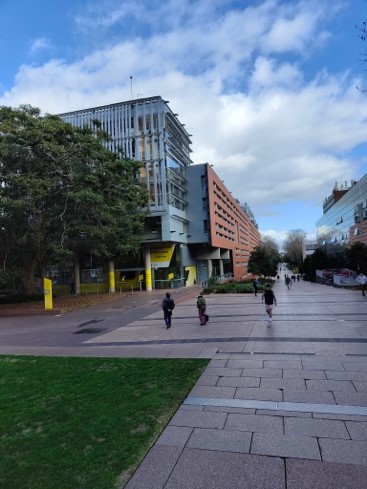
UNSW Campus
As usual, participants were mathematics teachers, teachers' trainers, researchers in mathematics education, mathematicians and historians of mathematics who were interested to know how the history of mathematics can be integrated into teaching at all levels and how it can help students to learn mathematics. The organization of the congress was very well planned in order to promote exchanges between participants involved in mathematical education in different ways, with discussions after each activity, two panel discussions and well-prepared breaks.
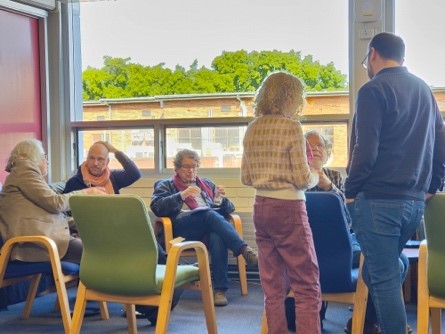
Exchanges during break
The scientific program included plenary lectures, panel discussions, oral presentations, workshops and poster exhibitions concerning both theoretical frameworks for integrating history in mathematics education, history and epistemology in teachers’ mathematics education, classroom experiments and teaching materials, mathematics and its relation to science, technology, and the arts, cultures and history of mathematics, topics in the history of mathematics education.
Many new topics were discussed at HPM-11, which will make it a landmark event for the types of research discussed at HPM meetings. In addition to several original presentations, we can note a plenary conference on the place of women in history and in mathematics education and a panel on the use of history to link mathematics and cultures in the classroom. These developments were made possible by the presence of many colleagues from Australia and the Indo-Pacific region. A special panel marked the 50th anniversary of HPM, where participants were invited to reflect on past, present and future of the Group. The participants wanted to meet again soon to continue working on old and new fields of research.
12.4. News from South Africa and the Association for Mathematics Education of South Africa (AMESA)
Dr VG Govender South Africa Country Representative:
The Association for Mathematics Education of South Africa (AMESA) was formed in June 1993. The current executive committee was elected at AMESA’s AGM in June 2024 and consists of the following persons:
President: Nkhensani Duba
Vice-President: Zingisiwa Mybert Monica Jojo
Treasurer: Oniccah Molokoane-Thibodi
Secretary: Diapo William Makhubela
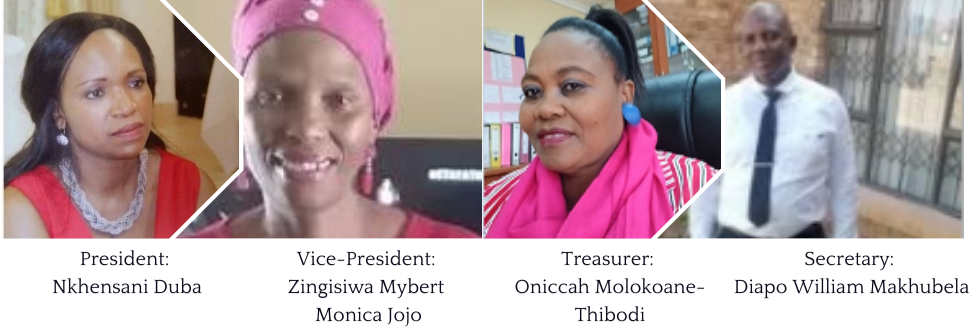
AMESA Congress 2024
This year the AMESA National Congress took place at Sol Plaatje University in Kimberley, in the Northern Cape Province of South Africa from June 17 to 21, 2024. The theme was “Reimagining Mathematics in a Digital Space”. There were approximately 1200 delegates at the Congress. Congress 2024 comprised 6 plenary sessions, regional meetings, AMESA AGM, 1 panel discussion and 6 parallel sessions. There were also evening activities in the form of social functions and an afternoon excursion on June 19. The parallel sessions consisted of 6 follow-up discussions with plenary speakers, 26 long papers, 6 short papers, 10 workshops and 20 Mathematics markets.
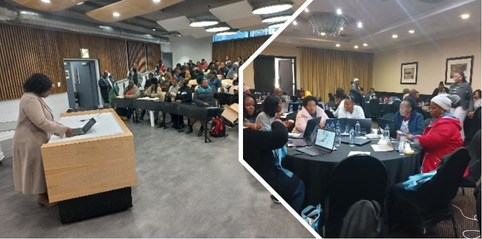
A brief look at teaching and learning across the phases in South Africa
As a follow-up to the AMESA Congress, delegates were surveyed on mathematics teaching and learning across the phases, and Mathematics Teacher Education. Some of the teachers’ responses were:
- Learner performance for the first 6 months was satisfactory to good. However, some learners required extra help at schools due to lack of parental support and other social issues faced within communities.
- Some teachers became adept at using a range of ICTs and digital resources during their teaching and learners take a keen interest in these lessons. However, most schools are not fully resourced in this regard.
- Teachers identified a range of content areas, across the grades, where additional support is needed. This includes Fractions and Geometry in the primary school grades and Algebra and Euclidean Geometry in the high school grades. Teachers also requested training in ICTs and digital technologies (as applied to Mathematics teaching and learning).
Mathematics Teacher Education in South Africa
Mathematics Education academics and others are always examining ways of improving the pre-service and in-service experience of teachers. In this regard, some of the new developments in teacher education and development in South Africa are:
- Teachers are being trained on 4IR-friendly ways of teaching, like the use of technology teaching tools together with accessing free online open education resources to use in teaching mathematics at all levels
- The impact of AI on teaching and learning
- The methodology in the foundation phase remains the same; teachers are encouraged to use ICTs and digital technologies.
- Mathematical modelling is getting attention in the STEM approach
- More emphasis is now being placed on conceptual understanding
Teachers involved in postgraduate studies have indicated that they have good working relationships with their supervisors; supervisors stated they give their students the necessary support that is needed for their studies on an ongoing basis. More teachers should be encouraged to take up post-graduate and other studies, across the phases.
12.5. Report from CIEAEM (The International Commission for the Study and Improvement of Mathematics Teaching)
By Lisa Björklund Boistrup, Secretary and Vice-president of CIEAEM
CIEAEM is currently preparing for CIEAEM 76, which will take place in Philadelphia, USA, from July 21-15, 2025. The time is chosen to be suitable for all who plan to go to PME48, in Santiago, Chile, from July 28-August 2.
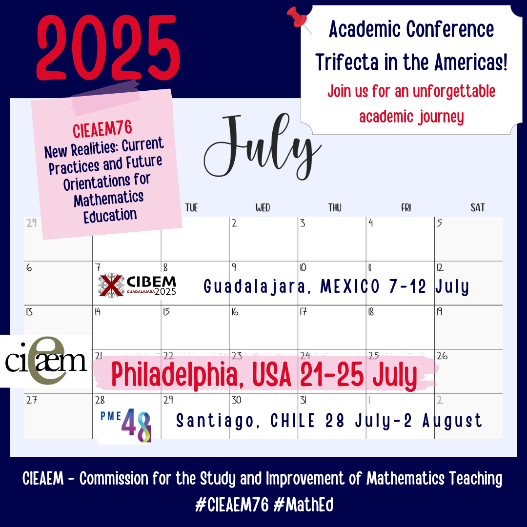

The theme of CIEAEM 76 is planned to be “New Realities, Current Practices and Future Orientations for Mathematics Education”. This theme is following up on the themes of CIEAEM 74 (“Mathematics and practices: Actions for futures”), in Malmö, and CIEAEM 75 ("New frontiers in mathematics education"), in Turin.
The theme of CIEAEM 76 takes its departure from how we are living in complicated times with new technologies creating anxieties about replacing basic skills, migration and economic systems amplifying inequities and generating confusion about how education should or could be relevant. The sudden and broad introduction of artificial intelligence (AI) tools across our lifeworld suggests rapid changes in how we think, teach and learn. In this rapidly changing world, mathematics is also facing important changes and dilemmas (e.g., proof, computational thinking etc.). These new realities require mathematics education to be proactive so that we can prepare people rather than leave them late to the game. This is a role that we in mathematics education can serve for the planet.
Subthemes are currently being developed, which will be the basis for working groups, who will meet and discuss mathematics education regularly during the conference. These sub-themes will cover topics such as “Mathematics Education, Environment and the More-than-Human”; “Mathematics Teachers, Teacher Education and Teacher Professional Development”; “Mathematics and Technologies”; “Public Mathematics and Social Justice Issues in Mathematics Education”; and “Early Childhood and Primary Mathematics for New Realities”.
In addition to presentations within the working groups, we will seek proposals for short participatory workshops that do not easily fit within the suggested subthemes. We also look forward to proposals for poster presentations from those for whom this is the ideal format to communicate their work.
More information will soon be available on the CIEAEM website.
12.6. Forty-seventh conference of the International Group for the Psychology of Mathematics Education report
Jodie Hunter, Chair of PME 47
The 47th conference of the International Group for the Psychology of Mathematics Education was held in Auckland, New Zealand and co-hosted by Massey University, University of Auckland, and Auckland University of Technology. We welcomed over 370 conference participants from 39 different countries beginning the conference with a traditional Māori welcome including a wonderful performance from a Kapa Haka group of primary aged children from a local school.
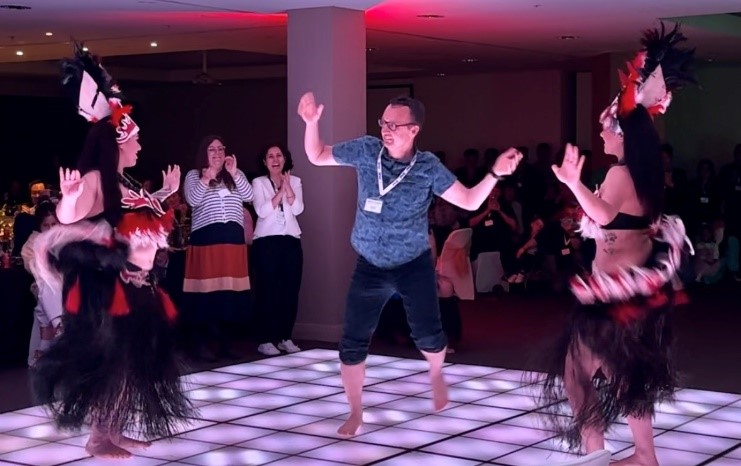
The connection to the Pacific region was continued at the conference dinner with a memorable performance of Ura (hula) dancing from the Cook Islands where PME conference participants also enjoyed an opportunity to show off their dance skills including IGPME President Wim Van Dooren.
The theme of the conference was “Rethinking Mathematics Education Together” which was chosen to emphasize mathematics education research as a shifting field of knowledge which is developed as a collective body of research. The theme had relevance to both the local Pacific/Oceania context as well as broader international contexts with ongoing debates to mathematics education and research, shifts in both curriculum and pedagogical practices, and a focus on developing equitable educational systems. We enjoyed plenary addresses from the international field across a diverse range of topics connected to the theme of the conference.
We build on the opportunity of having esteemed mathematics education researchers visit Aotearoa New Zealand to also support teachers to rethink their teaching and pedagogical practice. This was achieved with a one-day pre-conference teacher day where a range of researchers attending PME 47 shared their work through teacher workshops. Teachers in New Zealand highly valued this experience and enjoyed hearing about the connection between research and practice. Additionally, we hosted a highly attended Early Researcher Day where over 100 Early Career researchers participated in a series of workshops and talks focused on a variety of topics.
We wish to thank all of those who participated and contributed to the 47th conference of PME and helped to make it a successful event.
Mā te wā
13. Conferences to come
Congress of the European Society for Research in Mathematics Education (CERME14)
Dates: Feb. 4-8, 2025
Location: Bozen-Bolzano, Italy
More information on the website .
l'Espace Mathématique Francophone (EMF 2025)
Dates: May 26 - 30, 2025
Locartion: Montréal, Canada
More information on the website.
Annual Conference of the International Group for the Psychology of Mathematics Education (PME)
Dates: PME 48, July 28 to August, 2 2025
Location: Santiago, Chile
More information on the website.
World Federation of National Mathematics Competitions - WFNMC-10
Dates: 2026 (Date tbc)
Location: Kuala Lumpur, Malaysia
More information on the website.
International Conference on Teaching on Mathematical Modelling and Application- ICTMA-22
Dates:August 10 - 15, 2025
Location: Sweden at Linköping University
More information on the website.
9th ICMI-East Asia Regional Conference on Mathematics Education (EARCOME 9)
Dates: July 18-22, 2025
Location: Seoul National University, Siheung Campus, Korea,
The theme of the conference is “RE: Visiting the Essence of Mathematics Education in the Era of Digital Transformation.
More information on the website.
International Group for Mathematical Creativity and Giftedness- (MCG) 14th conference
Dates: on June 16 - 18, 2025
Location: Karlstad, Sweden
The deadline to submit your proposal is November, 1st 2024
More information on the website.
International Society for Design and Development in Education - ISDDE
Dates: May 19-22, 2025
Lcoation: University of Galway, Ireland
More information on the website.
Comité Interamericano de Educación Matemática/ CIAEM (Interamerican Committee on Mathematics Education IACME)
IV Congreso de Educación Matemática de América Central y El Caribe (IV CEMACYC)
Dates: November 2-7, 2025
Location: Santo Domingo, Domenican Republic
More information on the website.